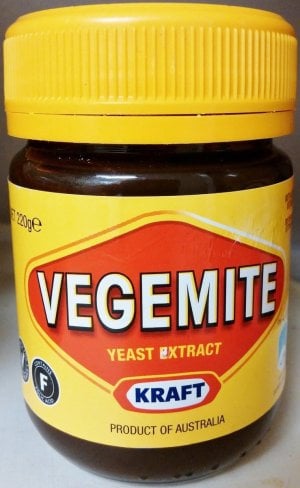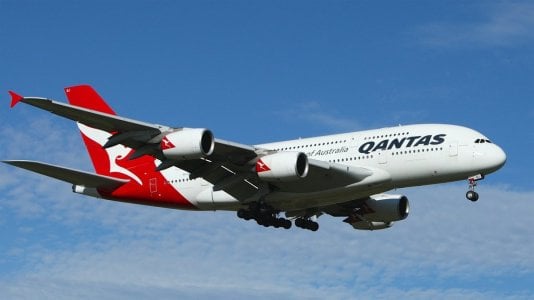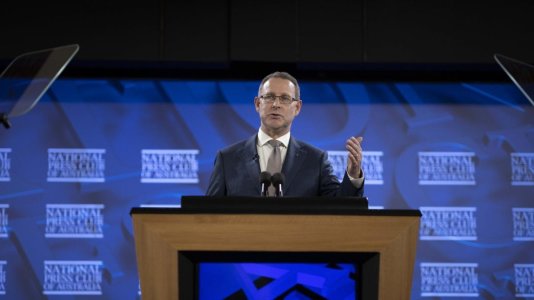Are supermarkets robbing you blind? Shocking revelations from a price gouging probe!
- Replies 59
In times where every cent matters, keeping a close watch on our regular spending has become par for the course.
A pressing concern for many Australians lately has been the noticeable uptick in supermarket prices. Beyond our grocery bills, even airfare costs have seen a sharp increase. So, what's behind these shifts?
The union-backed investigation is seeking answers to address ‘skyrocketing supermarket prices and surging airfares.’
The Australian Council of Trade Unions (ACTU) is spearheading this investigation with Professor Allan Fels in charge.
During the inquiry, Rebecca Thistleton, the Executive Director of McKell Institute, stated that price gouging was now a harsh reality, particularly for those in rural and remote regions.
Ms Thistleton explained, ‘When you already have decreased competition, the increased costs of getting fruit and vegetables transported to these areas mean the prices become unmanageable for anyone.’
Thistleton referenced research from the National Indigenous Australians Agency, showing that remote communities pay up to 40 per cent more for groceries than those in capital cities.
She underscored cases where consumers shelled out ‘$12 for a box of Cornflakes’ or ‘$13 for a small jar of Vegemite.’
But this isn't just about groceries.
Mike McNess, the National President of the Transport Workers Union, informed the inquiry that Qantas airfares had increased by 32 per cent compared to pre-pandemic levels.
He said: ‘While airfares have gone through the roof, service standards have gone through the floor’ and further added: ‘Paying a third more for a ticket wouldn't be justified even if standards had improved.’
However, in Qantas' annual report, the airline states that, compared to the days before the pandemic, its domestic fares have risen by only 4 per cent from pre-Covid levels, and its international fares have increased by 10 per cent, adjusted for inflation.
The inquiry marks the most recent phase in the continuing debate between employer groups and unions about the factors fuelling inflationary pressures in the economy.
At the inquiry's start, Professor Fels openly stated that price setting is the ‘missing piece’ to understanding Australia's inflation patterns.
Inflation has dropped from its 7.8 per cent peak in the December quarter to a recent 4.9 per cent. However, Professor Fels stresses the importance of understanding the impact of higher prices on households and identifying the reasons for the price increase.
‘I want to focus on the immediate prices. What's driving them? How are they set? Are they fair or unfair? Would they survive if there is true competition?’ he said.
The ACTU often referenced a recent analysis by the Organisation for Economic Co-operation and Development (OECD) from June.
This analysis revealed that in Australia, as inflation sped up early last year, higher prices were primarily driven by profits, especially from mining and energy companies.
Furthermore, the OECD found that when inflation hit its peak at 7.8 per cent in the December quarter, both profits and labour costs equally drove the price hikes.
After the inquiry's initial hearing, Andrew McKellar, Chief Executive of the Australian Chamber of Commerce and Industry (ACCI)—Australia's top business lobby group—described the inquiry as a ‘pantomime.’
‘It is a farcical inquiry. It is limited, superficial and has no power,’ McKellar said.
‘We already have bodies like the Australian Competition and Consumer Commission (ACCC) that are tasked to examine poor behaviour in the economy. Why the unions now feel they have a mandate to examine this issue is unusual.’
The inquiry will present findings and recommend policy solutions to the ACTU to curb future price gouging in an interim report by the end of this year.

Members, we want to hear from you! Have you personally felt the impact of price gouging on your day-to-day expenses? Share your experiences and thoughts with us below. How has it affected your household or business?
A pressing concern for many Australians lately has been the noticeable uptick in supermarket prices. Beyond our grocery bills, even airfare costs have seen a sharp increase. So, what's behind these shifts?
The union-backed investigation is seeking answers to address ‘skyrocketing supermarket prices and surging airfares.’
The Australian Council of Trade Unions (ACTU) is spearheading this investigation with Professor Allan Fels in charge.
During the inquiry, Rebecca Thistleton, the Executive Director of McKell Institute, stated that price gouging was now a harsh reality, particularly for those in rural and remote regions.
Ms Thistleton explained, ‘When you already have decreased competition, the increased costs of getting fruit and vegetables transported to these areas mean the prices become unmanageable for anyone.’
Thistleton referenced research from the National Indigenous Australians Agency, showing that remote communities pay up to 40 per cent more for groceries than those in capital cities.
She underscored cases where consumers shelled out ‘$12 for a box of Cornflakes’ or ‘$13 for a small jar of Vegemite.’
But this isn't just about groceries.
Mike McNess, the National President of the Transport Workers Union, informed the inquiry that Qantas airfares had increased by 32 per cent compared to pre-pandemic levels.
He said: ‘While airfares have gone through the roof, service standards have gone through the floor’ and further added: ‘Paying a third more for a ticket wouldn't be justified even if standards had improved.’
However, in Qantas' annual report, the airline states that, compared to the days before the pandemic, its domestic fares have risen by only 4 per cent from pre-Covid levels, and its international fares have increased by 10 per cent, adjusted for inflation.
The inquiry marks the most recent phase in the continuing debate between employer groups and unions about the factors fuelling inflationary pressures in the economy.
At the inquiry's start, Professor Fels openly stated that price setting is the ‘missing piece’ to understanding Australia's inflation patterns.
Inflation has dropped from its 7.8 per cent peak in the December quarter to a recent 4.9 per cent. However, Professor Fels stresses the importance of understanding the impact of higher prices on households and identifying the reasons for the price increase.
‘I want to focus on the immediate prices. What's driving them? How are they set? Are they fair or unfair? Would they survive if there is true competition?’ he said.
The ACTU often referenced a recent analysis by the Organisation for Economic Co-operation and Development (OECD) from June.
This analysis revealed that in Australia, as inflation sped up early last year, higher prices were primarily driven by profits, especially from mining and energy companies.
Furthermore, the OECD found that when inflation hit its peak at 7.8 per cent in the December quarter, both profits and labour costs equally drove the price hikes.
After the inquiry's initial hearing, Andrew McKellar, Chief Executive of the Australian Chamber of Commerce and Industry (ACCI)—Australia's top business lobby group—described the inquiry as a ‘pantomime.’
‘It is a farcical inquiry. It is limited, superficial and has no power,’ McKellar said.
‘We already have bodies like the Australian Competition and Consumer Commission (ACCC) that are tasked to examine poor behaviour in the economy. Why the unions now feel they have a mandate to examine this issue is unusual.’
The inquiry will present findings and recommend policy solutions to the ACTU to curb future price gouging in an interim report by the end of this year.
Key Takeaways
- A union-backed inquiry is investigating allegations of price gouging in supermarket prices and airfares.
- The Australian Council of Trade Unions, led by Professor Allan Fels, is conducting a probe into competition.
- Rebecca Thistleton of the McKell Institute highlighted price gouging issues in rural areas due to decreased competition and rising costs.
- The inquiry will provide the ACTU with findings on price gouging in an interim report by year-end.
Members, we want to hear from you! Have you personally felt the impact of price gouging on your day-to-day expenses? Share your experiences and thoughts with us below. How has it affected your household or business?










